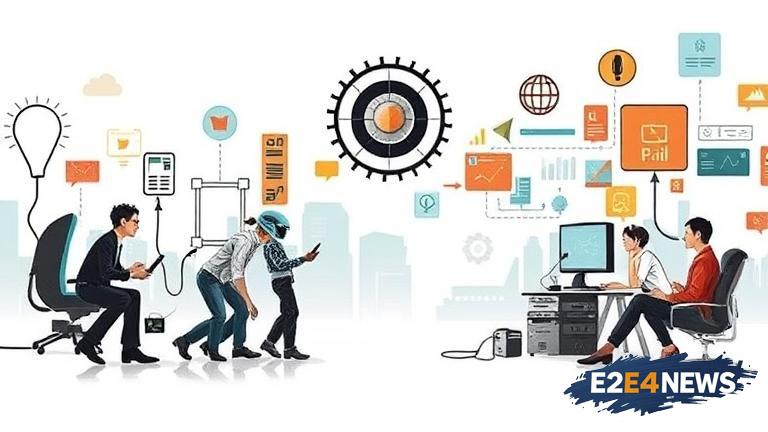The tech industry, once hailed as a bastion of progressivism and innovation, has undergone a significant transformation in recent years. What was once a culture of collaboration and open-mindedness has given way to a more insular and problematic mindset. The rise of the ‘tech bro’ culture, characterized by a focus on profit and disruption above all else, has led to a decline in the industry’s commitment to social responsibility and ethics. This shift has been driven in part by the increasing influence of venture capital and the pressure to deliver high returns on investment. As a result, the tech industry has become more focused on short-term gains than long-term sustainability. The consequences of this shift are far-reaching, from the exploitation of workers and the environment to the perpetuation of systemic inequalities. The tech industry’s impact on society is no longer limited to the digital realm, but has significant implications for the physical world as well. The rise of the gig economy, for example, has led to a decline in job security and benefits for workers. The industry’s focus on disruption and innovation has also led to the displacement of traditional industries and the erosion of social safety nets. Furthermore, the tech industry’s lack of diversity and inclusion has resulted in a lack of representation and opportunities for underrepresented groups. The industry’s response to these issues has been inadequate, with many companies prioritizing public relations over meaningful change. The consequences of this inaction will be severe, from the loss of public trust to the perpetuation of systemic inequalities. The tech industry must take a hard look at its values and priorities, and work to create a more just and equitable culture. This will require a fundamental shift in the industry’s mindset, from a focus on profit and disruption to a focus on people and the planet. The future of the tech industry, and of society as a whole, depends on it. The industry must also acknowledge its role in perpetuating systemic inequalities, and work to address these issues through meaningful action. This includes increasing diversity and inclusion, providing fair compensation and benefits to workers, and prioritizing social responsibility and ethics. The tech industry’s impact on the environment must also be addressed, through the adoption of sustainable practices and the reduction of waste and emissions. Ultimately, the tech industry has the power to shape the future of society, and it is up to the industry to ensure that this future is just and equitable for all. The industry must work to create a culture of transparency and accountability, where companies are held to high standards of ethics and social responsibility. The public must also hold the tech industry accountable, through activism and advocacy. By working together, we can create a better future for all, one that is shaped by the values of justice, equity, and sustainability. The tech industry’s evolution from progressive to problematic is a complex and multifaceted issue, and one that requires a nuanced and thoughtful approach. The industry’s history and development must be taken into account, as well as its current impact on society and the environment. The industry’s future must be shaped by a commitment to social responsibility and ethics, and a focus on creating a more just and equitable world for all. The consequences of inaction will be severe, and it is up to the tech industry to take a leadership role in shaping a better future. The industry must work to create a culture of collaboration and open-mindedness, where diverse perspectives and ideas are valued and respected. The industry must also prioritize education and training, to ensure that workers have the skills and knowledge needed to succeed in a rapidly changing world. By working together, we can create a brighter future for all, one that is shaped by the values of progressivism and innovation.
